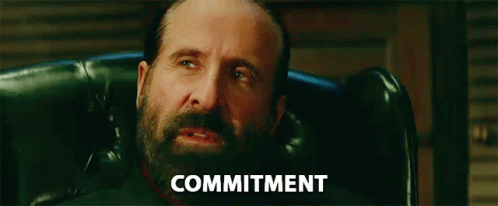#cultivate discipline
Text
youtube
#Trap of Average#The Personal Transformation Blueprint with Dan Storey | KAJ Masterclass LIVE In this episode#join Dan Storey#author#trainer#and motivational speaker#as he shares his powerful strategies for personal transformation. With expertise in NLP (neurolinguistic programming)#behavioral psychology#and a Master's Degree in Behavioral Decision Sciences#Dan dives deep into the mental processes required for success. Discover how to escape the develop unshakable mental toughness#and set audacious goals that propel you toward your dreams. Dan's own journey as a top natural physique bodybuilder in the UK serves as a t#cultivate discipline#or create a personal transformation blueprint#this episode promises invaluable insights and actionable steps to unlock your true potential.#Youtube
0 notes
Text
One thing that I feel is really interesting and often forgotten about Essek is that fundamentally, his characterization has been from the start based upon his desperation for external perspectives and connection, which, along with much of his narrative and mechanical positioning, means that he actually has an extraordinary and almost (but not actually, as I'll show) counterintuitive capacity for both growth and trust.
(Buckle in. This is a long one.)
In particular, I would argue, knowing now that many places where the plot touches Ludinus have long been marked for connecting back into the current plot, that he was quite possibly built as a prime candidate for radicalization by the Ruby Vanguard. He felt isolated from his culture, he was desperate for other connection, and he was certainly of the type to believe he was too smart to be drawn into such a thing, given his initial belief that he could control the situation and the fallout. If things had gone any other way, he easily could've been on the other side by now.
As such, he has been hallmarked by being fairly open to suggestion, perhaps for this reason, but the thing about that kind of trait is that it is both how people are radicalized and deradicalized. This is certainly true of Essek, who experienced genuine kindness and quite frankly strangeness from the Nein and was able to move from the isolation the Assembly had engendered to meaningful and genuine connection, largely propelled by his own internal reflection. By the time Nein are aware of his crimes, he's already begun to express regret to an extent and, furthermore, doubt in the Assembly, including explicitly drawing a line against Ludinus, even in a position where he was on his own and probably quite vulnerable.
Similarly, when the Nein reach the Vurmas Outpost some weeks later, he has moved from regret for the position he's ended up carrying a heavy remorse. This makes sense! He's fairly introspective, seems used to spending a lot of time in his own head, and was left with plenty to mull over. It's not some kind of retcon for him to have progressed well past where the Nein left him; it just means he's an active participant in the world who has done his own work in the meantime.
This is another interesting aspect to him. I've talked about this a bit before but I cannot find the post so I'll recap here: antagonists in D&D have significantly more agency than allied NPCs. Antagonists are active forces, against which the party is meant to struggle; allies are meant to support the PCs, which means they tend to be more passive in both their actions and their character growth. Essek was both built as an antagonist, in a position that gives him significant agency, and also was then given significant opportunity to grow specifically to act as a narrative mirror for Caleb's arc. Even when he becomes a more traditional D&D ally, he still retains much of that, though he occupies a supporting role.
I believe that this is especially true because of the nature of Caleb's arc, which I've already written on; the tl;dr of this post is that Caleb is both convinced that he is permanently ruined and also desperate to prove that change is possible. Essek is that proof, because he is simply the character in a position to do so. But this also means that his propensity for introspection and openness is accentuated! He has to do the legwork on his own, for the most part, because that's where he is in the meantime.
But he still ends the campaign necessarily constricted; he is under significant scrutiny, he's at risk from the Assembly, and he goes on the run fairly soon after the story ends. He spends most of the final arc anxious and paranoid, which is valid given the crushing reality of his situation. It would be very easy to extrapolate that seven years into this reality, he would be insular, closed off, and suspicious of strangers, even in spite of the lessons he's learned from the Nein and their long term exposure.
So seeing his openness and lightness now is surprising, but at the same time, given this combination of factors in his position in the narrative over time and his defining traits, it's not by any means unreasonable.
But one thing that I found so delightful is how much trust he exhibits, which is obviously a wild thing to say about Essek in particular, given much of what he learns is both earning and offering trust, which was something he says explicitly in 2x124 that he's never really experienced: "I've never really been trusted and so I did not trust." It makes up much of the progression of his relationship with Caleb, and the trust that he is offered by the Nein in walking off the ship is the impetus he needs to grow.
But I think it's easy to talk about trust when it comes to people who have proven themselves to you or to whom you've ingratiated yourself, and that's really the most we can say about Essek by the time he leaves the Blooming Grove. There is this sense in a lot of discussion of trust (not solely in this fandom) that it is only related to either naivete or love, but there's far more to it. Trust at its best is deliberate—cultivating an openness to the world at large is a great way to combat cynicism and beget connection instead. It allows a person to maintain curiosity and be open to experience, but it can be incredibly difficult to hold onto.
It is clear that the Essek we meet now is a very pointedly and intentionally trusting individual. He trusts Caleb and by extension Caleb's trust in Keyleth, as he shows up and picks up a group of strangers from a foreign military encampment and walks in without issue. He trusts the Hells to follow his lead moving through Zadash and to exhibit enough discretion so as to avoid bringing suspicion upon all of them. He trusts that Astrid will respond well to his entrance, but he also trusts himself and the Hells enough to execute a back-up plan in the case that she doesn't. In the end, he even trusts them enough to give them his name and identity.
He doesn't scan as someone who has spent half a dozen years living like a prey animal, afraid of any shadow he runs across in an alley, withdrawn into himself and an insular family, which would've been an easy route for him to take. He scans as someone who has learned the kind of trust borne of learned confidence and a trained eye for good will and kindness, which are crucial weapons one would need for staving off cynicism in his circumstances—as if he has survived thanks more to connection and kindness than paranoia and isolation. (If we want to be saccharine about it, he scans quite poignantly as a member of the Mighty Nein.)
So it is easy to imagine this trust and openness as a natural progression of his initial search for perspectives external to his own cultural knowledge. Though he makes those first connections with the Assembly to try to vindicate his personal hypotheses, he finds in them exposure to the deepest corruption among Exandrian mortals, which could've—and did, for a time—turned him further down that same dark path.
But it's also this same openness to exposure from the wider world that allows the Nein to influence him for the better, and in spite of the challenges he's certainly faced simply surviving over the past seven years, he seems to have held onto this openness enough to move through the world with self-assurance and a willingness to extend the kinds of trust and good will that he has been shown.
(I would be remiss not to mention that I was reminded about my thoughts on this by this lovely post from sky-scribbles and their use in the tags of 'light' to describe Essek's demeanor this episode, which is really such an apt word for it.)
#something something hope is a weapon hope is a discipline hope is a garden to cultivate!!!#HE'S SO GOOD HE IS TRULY EXEMPLAR OF THE WHOLE PHILOSOPHY OF THE NEIN AND I DO NOT THINK THAT'S AN ACCIDENT#truly just like. enormous proponent of letting trust and curiosity into your heart regardless of the horrors.#it's hard and it makes you more vulnerable and sometimes it hurts so so much but it will also save your fucking life!#cr spoilers#critical role#essek thelyss#cr meta#I was gonna apologize for the length but I'm not sorry. I'm also not sorry for being insane about him but he's so special to me.#head in my hands he's so GOOD HE'S BEST BOI! GUIDING LIGHT NORTH STAR!!! LOOK AT HIM!!!#also truly if i had two nickels for a span of time with no essek sightings where I wrote a lot of fic#with deliberate personal acknowledgment that I was writing some pretty maximal arcs for him in terms of character growth#and then end up getting essek for half an episode and having to go OH WE'RE GOING THAT FAR ACTUALLY. FUCKING INCREDIBLE.#yanno. two nickels. but good lord I am thriving that it's happened twice#augh this is ONE of the pieces I need to write this week. we're not gonna talk about it
331 notes
·
View notes
Text
Ok but do y'all ever think about how wild the context is for Wei Wuxian when Lan Wangji has himself punished beside him?
Like, Wwx grew up at Lotus Pier being treated as the universal scapegoat for every time the kids got up to mischief. We see it a little bit of this in the actual novel, and the Lotus Seed Pod extra goes out of its way to point out how Wwx is very often the only one punished, even if he, Jiang Cheng, and the shidi are all breaking the rules collectively. He's often the "instigator" for their misbehaving, and Madame Yu just doesn't like him, so though we know Jiang Cheng has been whipped at least once, Wwx is clearly used to being treated and punished as a lone troublemaker for collective crimes.
Compare that to how Lan Zhan treats him in Gusu.
When Lz first comes to collect Wei Wuxian the morning after they go over the wall together, the scene has got to look pretty familiar for Wwx. Their whole room is filled with evidence of the group staying up late and drinking, not to mention Nie Huaisang's porn stash, and Lan Zhan himself technically also "broke the curfew" the night before, but it looks like Wei Wuxian's going to once again be the only one to get punished. He's the ringleader for mischief after all, and the one that not only snuck out past curfew, but dragged the well behaved Lan Zhan down with him. Madame Yu absolutely would have had him whipped alone for his crimes. But Lan Zhan sits down next to him.
How wild do you think that moment was in Wei Wuxian's head? Do you think Jiang Cheng had ever insisted back home that he and Wei Wuxian had both broken the rules together, so it wasn't fair that only Wwx should be punished? Do you think Madame Yu would ever in a million years have listened to him? Do you think Wwx was relieved to realize that he wasn't going to be scapegoated all alone yet again? Or was he just confused? Or was he guilty about having dragged Lan Zhan into a beating with him?
Wwx is totally in awe of Lan Zhan's earnestness when they talk about the incident in the cold spring later, and though Lz's willingness to be beaten for being pulled over the wall is astonishing enough in any case, Wei Wuxian's prior history with punishment has to also play a role in his reaction. I don't think he'd ever encountered someone before that had the authority and willingness to punish him, but didn't use that authority to single him out unfairly.
#I say authority and willingness because we have no evidence of Jiang Fengmian using corporal punishment on his kids at all#or giving wwx any particular discipline in general#so he's not very relevant#and also like to be clear. young Lan Zhan's relationship with punishment is also effed#bc it is absolutely insane that lan qiren made a fifteen year old child in charge of having beatings administered to his peers#but given how he was raised and how young he was. it's not exactly a strike against LZ that he want along with all that#mdzs#mo dao zu shi#the grandaster of demonic cultivation#wangxian#invasion of the frogs
751 notes
·
View notes
Text
every time people i know irl ask me for book advice i give them my tips and tricks and they look at me like i'm an insane person, which is why i usually shy away from giving any kind of advice lol
#me: i set aside time every night to read at least 100 pages every night them: you do WHAT#the tip to doing anything is cultivating a sense of self-discipline and intentionality. that's the biggest thing i've learned as an adult 🤕
20 notes
·
View notes
Text
Lan Wangji's 33 whips is NOT a mark of love!!!
Please stop torturing Lan Wangji to, in whatever way, have to be punished by discipline whips, to prove his love for Wei Wuxian!
That is a mark of pain and agony!
That is a mark of how fucked up their cultivation world including Gusulan is, to actually whip someone to death (if not for Lan Wangji having a very high cultivation to begin with) to protect someone who was deprived of justice (Wei Wuxian who was slandered, framed, and ambushed to death) because he chose to stand against those 33 elders from capturing and give WWX away to be what.. Killed? Experimented? Imprisoned like Wen Ning? Forced to make another YinHufu? Haha.
That is a mark of how fucked up their world morality is, listening to the big shots rather than investigating the truth!
That is a mark of irony in Gusulan distorting way to implement their 3000 rules.
Have a righteous face rather than Be Righteous...
But those 33 Discipline Whips never, ever, be WangXian mark of love!
Lan Wangji never, in any way, need any whip to prove his love for Wei Wuxian.
#lan wangji#lan zhan#discipline whips#wangxian#wei wuxian#wei ying#hanguangjun#yiling laozu#mdzs#mo dao zu shi#grandmaster of demonic cultivation
39 notes
·
View notes
Text
I just sat down and put together my schedule for this week. The ultimate goal with this schedule is to build and cultivate discipline. And as a means to do so I’m going to keep to this schedule all week with a check in on Thursday (my hump day) to see if I need to make any adjustments or anything. Then as a trial I’ll stick to the schedule for 8 weeks (still maintaining my hump day check ins).
#cultivating discipline#keepxgoing#let’s do this#mine#me#thottiewitaplann#goals#black studyblr#plottin#studyblr
9 notes
·
View notes
Text
Nurturing Tomorrow's Leaders: Positive Parenting Advice for Every Family
In the journey of parenthood, the approach we take can profoundly shape the lives of our children. Positive parenting is not just a philosophy but a commitment to fostering healthy relationships, nurturing self-esteem, and guiding children towards becoming confident, compassionate individuals. In this blog, we'll explore essential positive parenting advice that can empower families to create nurturing environments where children thrive.

Cultivating Connection through Communication
Effective communication forms the cornerstone of positive parenting. Listening attentively to our children's thoughts, feelings, and concerns fosters a sense of trust and mutual respect. Encourage open dialogue, validate their emotions, and engage in active listening to strengthen the parent-child bond. By creating a safe space for communication, children feel valued, understood, and supported in expressing themselves.
Setting Clear and Consistent Boundaries
Boundaries provide children with a sense of security and structure, guiding their behavior and decision-making. Positive parenting involves setting clear, age-appropriate boundaries and enforcing them consistently with love and empathy. Rather than focusing solely on punishment, emphasize teaching moments and encourage positive reinforcement for desired behaviors. Consistency and predictability help children develop self-discipline and understand the importance of responsibility.
Practicing Positive Discipline Techniques
Positive discipline is about teaching, guiding, and redirecting behavior in a respectful and non-punitive manner. Instead of resorting to harsh punishment or criticism, focus on positive reinforcement, logical consequences, and problem-solving strategies. Encourage cooperation by offering choices, using praise and encouragement, and modeling respectful communication. By fostering a collaborative approach to discipline, children learn to internalize values, make responsible choices, and develop self-regulation skills.
Nurturing Emotional Intelligence
Emotional intelligence plays a crucial role in a child's overall well-being and success in life. Positive parenting involves nurturing emotional intelligence by validating feelings, teaching coping skills, and modeling healthy emotional expression. Create opportunities for children to identify and label emotions, discuss strategies for managing stress and frustration, and practice empathy and compassion towards others. By prioritizing emotional development, children build resilience, empathy, and self-awareness, essential qualities for navigating life's challenges.
Fostering a Growth Mindset
Encourage a growth mindset, emphasizing the importance of effort, perseverance, and learning from mistakes. Instead of praising innate abilities, focus on acknowledging hard work and resilience. Encourage children to embrace challenges, view setbacks as opportunities for growth, and celebrate their progress and achievements along the way. By instilling a growth mindset, children develop resilience, optimism, and a belief in their ability to overcome obstacles and achieve their goals.
Conclusion
Positive parenting is not about being perfect but about being present, empathetic, and intentional in our interactions with our children. By cultivating connection through communication, setting clear boundaries, practicing positive discipline, nurturing emotional intelligence, and fostering a growth mindset, parents can create supportive environments where children feel loved, valued, and empowered to reach their full potential. Together, let's embark on this journey of positive parenting, shaping tomorrow's leaders with love, compassion, and guidance every step of the way.
#Effective positive parenting advice strategies#How to practice positive discipline techniques#Nurturing emotional intelligence in children#Cultivating a growth mindset in kids#Building strong parent-child communication skills
1 note
·
View note
Text
The Art of Patience: Unlocking Potential Through Delayed Gratification
In a world that moves at the speed of a click, the art of waiting may seem like a forgotten melody. Yet, it is in the quiet symphony of delayed gratification that the most profound life achievements orchestrate their debut, one that leads to greater success and fulfillment in the pursuit of our dreams.
Understanding Delayed Gratification
Delayed gratification is the ability to resist the…

View On WordPress
#Achieving Dreams#Cultivating Willpower#Delayed Gratification#Embracing Sacrifice#Future Rewards#Inspirational Growth#Life Milestones#Long-Term Goals#Mindful Living#Overcoming Temptation#Patience and Success#Personal Development#Resilience and Perseverance#Reward vs. Sacrifice#Self-Discipline#Strategic Goal Setting#Success Mindset#The Power of Patience
0 notes
Text
The Commitment Code
Commitment Quotes
32 Lessons
1. “Commitment leads to action. Action brings your dream closer.” – Marcia Wieder
2. “Without commitment, you cannot have depth in anything.” – Neil Strauss
3. “Desire is the key to motivation, but it’s determination and commitment to an unrelenting pursuit of your goal – a commitment to excellence – that will enable you to attain the success you seek.” – Mario…

View On WordPress
#achieving self-discipline#building self-mastery habits#commitment for personal success#commitment for self-growth#commitment to personal transformation#Commitment to self-improvement#cultivating self-mastery#dedication#developing commitment for change#mastering self-control#personal commitment#personal commitment strategies#personal growth commitments#self-commitment journey#self-commitment mindset#self-commitment techniques#self-commitment tips#self-determination and commitment#self-development commitments#self-discipline practices#self-mastery goals
0 notes
Text
youtube
#How to Unlock Your Peak Performance with Christopher Smith | KAJ Masterclass LIVE Join Christopher Smith#a seasoned fitness#nutrition#and mindset coach#as he shares his wealth of experience and inspiring philosophies on self-mastery. With over 25 years of coaching expertise across various s#including the Marine Corps and as a physical therapist#Christopher brings a unique perspective on developing habits#overcoming obstacles#and achieving peak performance. In this engaging episode#Christopher will share practical strategies and insights to help you cultivate a lifestyle of commitment#discipline#and consistency#empowering you to reach your full potential.#Youtube
0 notes
Text
Unleashing the Power Within: The Will to Succeed
Written by Delvin
Welcome to another Saturday Motivational blog post! Today, we delve into the profound words of Vince Lombardi, the legendary American football coach. Lombardi’s quote reminds us that success is not solely determined by physical strength or intellectual prowess, but by a powerful force within us—the will. In this article, we explore the significance of willpower in achieving…
View On WordPress
#Commit to Self Discipline#Cultivating Willpower#dailyprompt#Defining Willpower#Embrace Resilience#Happy Saturday#Motivational#Nurturing a Growth Mindset#Overcoming Challenges#Personal growth#Saturday Motivation#Self Care#Set Clear Goals#Stay Motivated#The Fuel that Ignites Willpower
1 note
·
View note
Text
The Power of Grit: Unlock Your Resilience and Achieving Success
In the pursuit of success and personal growth, many factors come into play. While talent and intelligence are often celebrated, there is another essential quality that distinguishes high achievers from the rest: grit. Coined by psychologist Angela Duckworth, grit refers to the unique combination of passion and perseverance that enables individuals to overcome obstacles and achieve their long-term…

View On WordPress
#grit#how to cultivate grit#growth mindset#ingredients og grit#personal development#what is grit#passion#long-term goals#learning from failure#self-discipline#resilience in entrepreneurship#perseverance and grit#perseverance#perseverance in business#perseverance and success#perseverance practices#resilience#continuous improvement#resilience building
0 notes
Text
Trusting God’s Provision: Resting in His Promises
As Christians, we can depend on the Lord to provide for our daily needs. Abraham knew this to be true and said of Yahweh, “The LORD Will Provide” (Gen 22:14). And Paul wrote, “God is able to make all grace abound to you, so that always having all sufficiency in everything, you may have an abundance for every good deed” (2 Cor 9:8), and “God will supply all your needs according to His riches in…

View On WordPress
#abiding in Christ#abounding in love#anxiety#assurance#assurance of salvation#being a light in the world#belief#blessings#Christian community#Christian identity#Christian life#Christian values#comfort#contentment#Courage#cultivating gratitude#daily confession#daily dependence#discipline#divine favor#divine guidance#divine healing#divine love#divine protection#edifying others#eternal hope#eternal life#eternal security#experiencing God&039;s presence#faith
0 notes
Text
HAVING AN INTENTIONAL ROOM


Your room is the most important place in your life. You sleep, wake up, heal and experience many emotions just in your room. You have to take care of your room, so it is spiritually the ideal place to grow into the best version of yourself.
KEEPING YOUR ROOM CLEAN
Keeping your room free of mess is an act of mindfulness and self-discipline that supports your overall journey and connects you with your higher self. It helps with promoting clarity, and cultivating inner balance and is an everyday self-care ritual.
Make your bed every day. You have to respect the place in which you sleep and heal.
Hang up clean clothes after the day or put any dirty clothes in your laundry hamper, avoid tossing them on the floor.
Find a place for everything, and know where everything is. If you do not know where each thing in your room is located, you either have too much clutter or you’re disorganised.
Tidy up your room daily, neatly putting everything away in its place. If needed, buy a few organisers.
Don’t leave rubbish for extended periods. Treat your room like a temple, don’t disrespect it, and pick up after yourself.
Try to avoid eating meals in your bedroom. We forget the dirty dishes over time, and it stinks and attracts unwanted bugs.
Change bed sheets regularly. Once a week at the most, for more hygienic reasons though.
Remove unwanted items on your bedside table. Keep it minimal and intentional with anything you want to place on it.
Regularly clean up the dust in your room, using a duster or a damp microfiber cloth on all of the surfaces.
ENCOURAGING GROWTH IN YOUR LIFE
A room designed to encourage inner growth serves as a physical reminder of your commitment to self-improvement, personal development, and overall well-being. It creates an environment helpful to improvement, self-reflection, and positive change.
Keep specific areas of your room designated to one task in your life. For me, my desk is for productivity, my bed is for resting or relaxing and my bedroom floor is for mindful activities.
Throw away any items that do not serve a purpose to you anymore. Avoid keeping items that bring you painful or harmful memories.
Minimise the presence of technology in your room. I suggest having zones in your room which is device-free or having a time of day in which devices are not allowed in your room.
Create a vision board poster in your room that you can see every day, which helps to visualise and motivate you to create your dream life.
Place meaningful quotes, affirmations, mantras or prayers as reminders of the values, mindsets or intentions you wish to cultivate in your life.
Display personal achievements. If you won any awards or certificates, place them in a way in which you can view them every day. If you have done something in your life that you think is an achievement but have no award to display, just simply create your own. Buy some balsawood and glue it together to create your own medal.
Place items that align with the habits or routines you want to cultivate in your life so that they are easily accessible. Put a workout mat in the corner, always have your journal on your desk or have a cold water bottle ready to go when you wake up.
3. DECORATING YOUR ROOM TO REFLECT YOU
Decorating your room in a way that reflects your true self brings a sense of authenticity and comfort. It creates a nurturing environment that allows for self-expression, reflection, and personal growth which ultimately contributes to your journey of inner development.
Make a mood board or vision board of how you would want your room to look, how it supports you and how it makes you feel. Choose a colour scheme in this process as well.
Add candles or incense that you think embodies who you are, or who you want to be. For example, if I want to be a cleaner person, I would choose a candle that smells like fresh linen.
Put up posters of things that you like, people who you look up to or anything that expresses who you are.
Add a canopy to your bed while you sleep. So cute, and I believe it helps protect you from any unwanted energy entering through you while you sleep.
Add a rug, even if you already have carpet, to enhance the cozy ambience of the room.
An ottoman at the end of the bed can elevate your room to look more expensive, if needed, it can also be an organiser for your extra things.
Put life in your room, adding low-maintenance plants or flowers can liven it up. A little extra, research some plants or flowers meaning’s and pick one that resonates with you.
Display any of your favourite jewellery, bags, clothing pieces, or make-up around your room. A nice way to appreciate what you have, without actually using them.
#becoming that girl#clean girl#green juice girl#becoming her#that girl#that girl lifestyle#glow up#glow up era#pink pilates girl#dream girl#dream girl life#pink pilates princess#it girl#it girl energy#it girl tips#dream girl tips#feminine energy#feminine journey#that girl energy#that girl routine#wonyoungism#hyperfemininity#hypergamyblr#self improvement#self development#self help#self care#self growth#self love#inner strength
4K notes
·
View notes
Text
My consistency is up like 200% and my screen time is down 11% 💪
0 notes
Text
the idea that reading is 'supposed to be' some kind of unenjoyable gruelling intellectual penance is also so goofy because like, good fucking luck disciplining yrself into cultivating a habit you hate and that makes you miserable i guess! it's like if you insisted people's food should be bland or unpalatable in the name of Health and anyone who ate something tasty was morally inferior and a societal danger. oh wait
7K notes
·
View notes